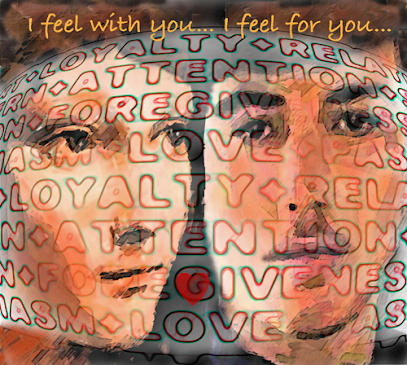Mood swings fuelled Heston Blumenthal's genius. But the highs got higher and the lows got darker
Renowned chef Heston Blumenthal, celebrated for his groundbreaking dishes like bacon-and-egg ice cream, reveals a deeply personal struggle in a new BBC documentary. Heston: My Life with Bipolar explores his late diagnosis of bipolar disorder and its profound impact on his family and career.
For decades, Blumenthal dismissed his emotional extremes as part of his creative process. His manic highs fueled culinary innovation, while depressive lows left him immobilized. By 2023, however, his mental health spiraled into psychosis—hallucinations of guns, obsession with death—forcing hospitalization and a diagnosis at age 57. “How did I go so long without knowing?” he reflects. His son Jack recounts strained childhood memories: “Planning weeks ahead just to see him for 30 minutes… I felt helpless.”
Blumenthal’s eccentricity, once seen as charmingly quirky, masked a worsening condition. In a 2020 interview, his disjointed metaphors (“putting the shadow back into sunlight”) signaled unchecked mania. Psychiatrist Prof. John Geddes notes such behavior thrived in celebrity culture, where chaos was mistaken for genius. Yet, at home, Blumenthal’s volatility fractured relationships. Research shows bipolar disorder impacts five family members per diagnosed individual—a statistic echoed in Jack’s raw account of instability.
Post-diagnosis, Blumenthal transitioned to lithium, a mood-stabilizing medication. Initially, side effects left him feeling “zombified,” but gradual adjustments restored clarity. Lithium, termed the “gold standard” for bipolar care, requires precise monitoring—a challenge in the UK’s overstretched mental health system. Prof. Geddes highlights critical gaps: waits for diagnosis average nine years, and lithium use is declining despite its proven benefits. “Patients become ghosts in the system,” he says, referencing rising suicide rates among those untreated.
Blumenthal’s journey mirrors many with bipolar disorder: years of misunderstood symptoms, fractured relationships, and eventual acceptance. He now embraces his condition as intrinsic to his identity. “I wouldn’t erase it,” he admits, acknowledging how bipolarity shaped his creativity. Therapy and medication have allowed him to manage extremes without dulling his spark.
The documentary captures Blumenthal’s transformation from isolated innovator to mental health advocate. Once shielded by a team enabling his erratic brilliance, he now uses his fame to highlight systemic failures. “Timely care saves lives,” he stresses, critiquing the UK’s shortage of psychiatrists. His story underscores a universal truth: mental illness thrives in silence but withers under understanding.
Blumenthal’s tale is one of resilience—a man who learned to coexist with the “fire” of bipolar disorder rather than extinguish it. For families like his, the documentary offers hope: diagnosis and treatment can mend bonds and restore purpose. As Prof. Geddes observes, “Recovery isn’t about erasing the condition but finding balance within life’s chaos.” Through vulnerability, Blumenthal proves clarity often follows crisis, and even fractured minds can heal.
WORDS TO BE NOTED-
-
Psychosis (noun):
A severe mental state characterized by hallucinations, delusions, and distorted perceptions of reality. -
Volatility (noun):
Unpredictable, rapid changes in mood or behavior. -
Intrinsic (adjective):
Belonging naturally; essential to something’s identity. -
Disjointed (adjective):
Lacking coherence or logical connection. -
Quirky (adjective):
Unconventional or peculiar in an appealing way. -
Immobilized (adjective):
Rendered motionless or unable to act. -
Coexist (verb):
To exist harmoniously despite differences. -
Zombified (adjective, informal):
Drained of energy or emotion; apathetic. -
Eccentricity (noun):
Unusual or odd behavior. -
Fractured (adjective):
Broken or damaged, often referring to relationships.
Celebrity chef Heston Blumenthal’s battle with undiagnosed bipolar disorder, explored in the BBC documentary Heston: My Life with Bipolar, reveals the duality of his genius and mental turmoil. For decades, his manic creativity—evident in dishes like snail porridge—masked severe mood swings, culminating in a 2023 psychotic episode that led to hospitalization and diagnosis at age 57. His son Jack recounts the emotional toll of Heston’s erratic behavior, describing fractured family bonds and helplessness. Post-diagnosis, transitioning to lithium stabilized his moods, though initial side effects left him feeling “zombified.” The film critiques systemic gaps in UK mental healthcare, where delayed diagnoses and limited lithium use exacerbate risks like suicide. Psychiatrist Prof. John Geddes notes bipolar patients often become “ghosts” in overstretched systems. Heston now advocates for awareness, embracing bipolarity as part of his identity while urging better support for families. His journey underscores resilience, balancing chaos with clarity, and the power of confronting mental health struggles openly.
SOURCES- BBC NEWS
WORDS COUNT- 500
FLESCH-KINCAID- 15




Comments
Post a Comment